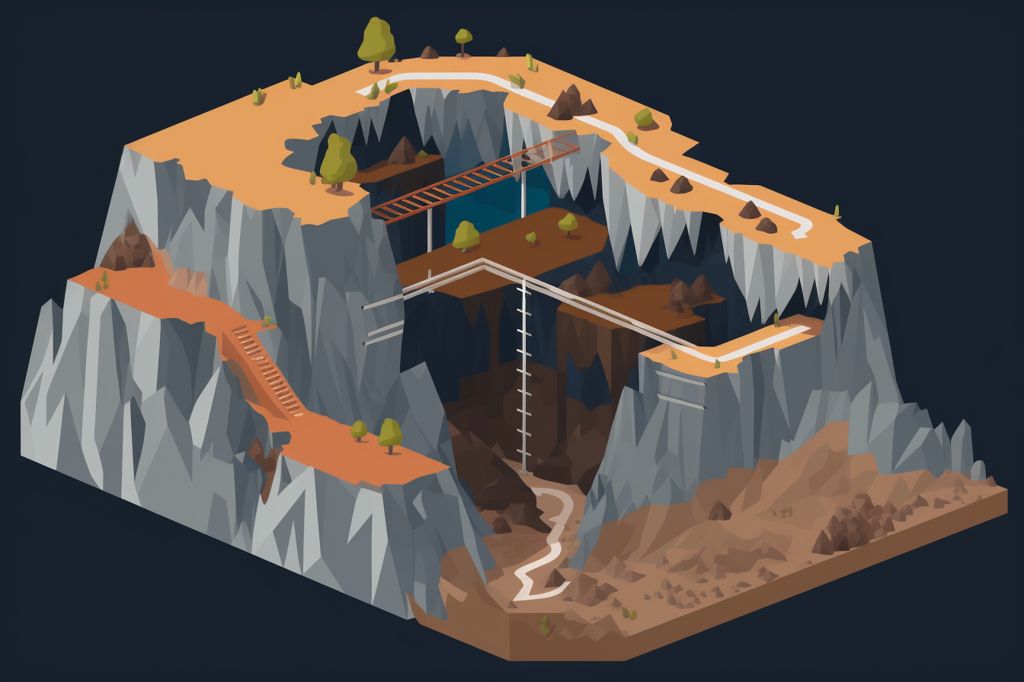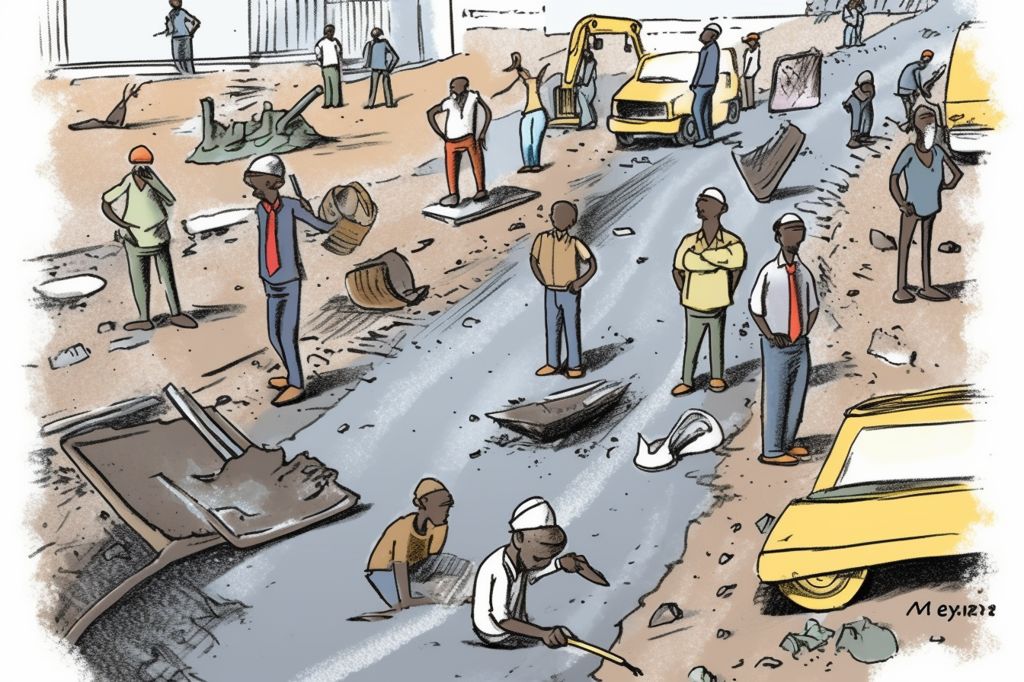On a tranquil Sunday morning, the inhabitants of Johannesburg’s East Rand were rudely awakened by an abrupt tremor. The Council for Geoscience (CGS) confirmed that a local magnitude 4.4 earthquake had occurred on the South African Seismograph Network (SANSN). The center of this seismic event was near Boksburg, several kilometers from the East Rand Proprietary Mine (ERPM).
The Role of the Council for Geoscience in Monitoring Seismic Activity
As the overseer of SANSN, the CGS is responsible for supervising seismic activities in South Africa. With cutting-edge technology and skilled specialists, the CGS strives to comprehend the country’s geology and geophysics. To raise awareness and educate the public, the CGS has urged individuals to use an online survey to document their experiences.
The History of Seismic Activity in South Africa
Seismic activity is not unusual in South Africa, and the nation has experienced numerous earthquakes with varying magnitudes and outcomes. Each event has contributed to the collective knowledge of the region’s geology and the potential hazards associated with seismic activity.
The Geological Landscape of Johannesburg’s East Rand
The East Rand boasts a rich history and diverse geology. The well-known Witwatersrand Basin has a significant role in defining the region’s geological landscape and has produced a large proportion of the world’s gold. The substantial mining activity has altered the geological structure of the area, leading to speculation that the recent earthquake may be linked to mining-induced seismicity.
The Connection Between Mining and Earthquakes
Mining-induced earthquakes are not a new phenomenon. Throughout history, the extraction of minerals from the earth has been associated with seismic events. As mining activities progress, the pressure on the rocks surrounding the mines increases, causing fractures and movement along fault lines. These movements can generate seismic waves that manifest as earthquakes.
Seismic Events in South African Culture
Seismic events have played a significant role in shaping South African culture. Literature, artwork, and oral traditions have captured not only the fear and devastation caused by earthquakes but also the beauty and wonder of these natural phenomena. Seismic activities have influenced the course of the region’s development and identity.
Understanding the Complex Relationship Between Human Activity and the Earth’s Natural Processes
Analyzing the recent earthquake in Boksburg and its possible connection to mining-induced earthquakes presents a valuable opportunity to explore the intricate relationship between human activity and the earth’s natural processes. As mining continues to be a crucial part of the East Rand, it is essential to comprehend the possible outcomes of extracting resources from the earth.
The Importance of Public Participation in Studying Seismic Activity
The recent seismic event in Johannesburg’s East Rand highlights the ever-changing and unpredictable geological landscape of South Africa. By collaborating with the CGS and contributing to their online survey, the inhabitants of the area can assist in the ongoing study of the country’s geology and geophysics. As the CGS continues to monitor seismic activities across the nation, the collective knowledge of South Africa’s geological dynamics will deepen and expand.
In conclusion, the recent earthquake in Johannesburg’s East Rand is evidence of the complex geological processes happening beneath the earth’s surface. As the CGS continues to investigate the event and collect data from the public, it serves as a reminder of the undeniable connection between human activity and the natural world. Through greater cooperation and understanding, South African society can work towards mitigating the risks associated with seismic events, ensuring the safety and security of both current and future generations.








